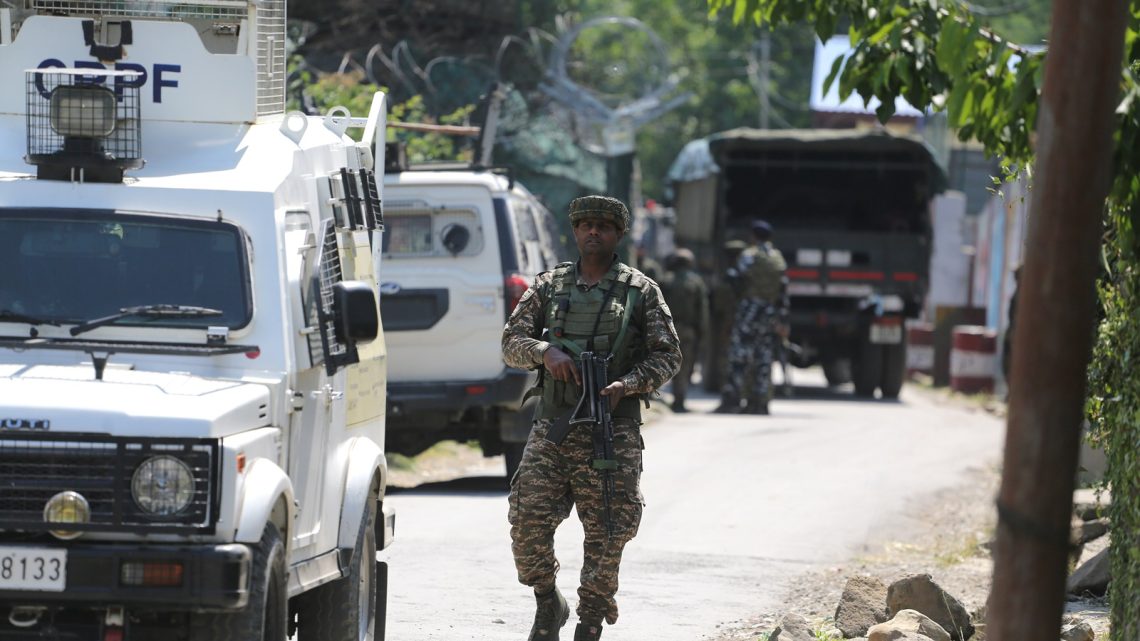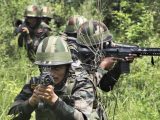
Drug Scandals and Corruption Erode Indian Army’s Credibility in IIOJK
November 2, 2024In the ongoing struggle for control in Indian Illegally Occupied Jammu and Kashmir (IIOJK), senior Indian Army leaders continue to deflect responsibility by pointing fingers at Pakistan, accusing it of destabilizing the region. Despite longstanding claims of cross-border terrorism, recent reports shed light on an underlying pattern of staged encounters, corruption, and systemic manipulation by Indian authorities, casting doubt on the legitimacy of these accusations. Analysts suggest that the Indian Army uses this rhetoric as a calculated tool to divert public attention away from internal issues within the military and government.
Observers note that these accusations serve a dual purpose: they allow the Indian government to foster anti-Pakistan sentiment among its citizens, simultaneously deflecting international scrutiny from its actions in Kashmir. However, an emerging rift within the Indian Army itself suggests that even some Indian officers are increasingly critical of the senior command’s policies and the lack of accountability. Reports of corruption and drug smuggling within Indian military ranks reveal troubling systemic flaws. From 2017 to 2021, several high-ranking officers were arrested on charges related to narcotics trafficking, casting a shadow over the military’s credibility. Allegations indicate that some army personnel exploit their positions to facilitate drug transport across the Line of Control (LoC), undermining the army’s integrity. This troubling nexus between the military and criminal enterprises complicates India’s credibility, particularly when accusations against Pakistan remain unsubstantiated.
Kashmir, one of the most militarized regions globally, has seen a surge in illicit drug circulation, raising questions about the efficacy and priorities of Indian law enforcement agencies (LEAs). Interestingly, the increase in drug trafficking in Kashmir aligns with trends in mainland India, suggesting that the origin of this contraband lies within Indian borders rather than Pakistan. The alarming rise in drug-related arrests among Indian military personnel has added fuel to the controversy. In 2021, for example, the National Investigation Agency (NIA) uncovered a cross-border drug trafficking network involving a Border Security Force (BSF) officer in Kashmir. During its inquiry, the NIA found evidence of extensive cash proceeds from the drug trade, exposing the depths of corruption among security forces stationed in IIOJK.
Compounding these concerns, substantial drug seizures, such as the major 2021 busts at the Mundra Port in Gujarat, hint at broader issues within India’s ports and supply chains. International reports have further implicated Adani Group’s network, which manages critical ports like Chabahar and Mumbai, in facilitating questionable transactions. These incidents reinforce suspicions about the extent of India’s involvement in the regional narcotics trade, exposing contradictions between India’s stringent claims of border security and the reality of drug proliferation.
In a bid to protect its narrative, India’s state-backed media repeatedly amplifies unverified claims against Pakistan. This coordinated media effort portrays Pakistan as the source of instability, although little evidence supports these assertions. Security officials, including General Officer Commanding (GOC) Chinar Corps and Kashmir region’s DGP Dilbagh Singh, have frequently praised local cooperation in curbing terrorism in Kashmir, citing the supposed containment of cross-border movement. Yet, despite these claims, the Indian government and media continue to blame Pakistan for internal security lapses.
Critics argue that this pattern of blame-shifting serves to obscure India’s security and human rights violations in IIOJK. The persistent accusations against Pakistan not only overshadow local issues within India but also allow the Indian government to avoid addressing the stark realities in Kashmir. This scapegoating tactic functions as a tool to distract international observers from India’s human rights abuses in the region, where civilians face arbitrary arrests, extrajudicial actions, and routine harassment under the guise of counterterrorism.
In response to the ongoing propaganda, Pakistan’s government has categorically rejected India’s allegations, calling for a focus on transparency and accountability. Pakistani officials have reiterated their commitment to international standards, challenging India to re-evaluate its practices before shifting blame. They emphasize that India’s unchecked media campaign damages regional diplomacy, heightening tensions without addressing the root causes of instability.
As India’s internal challenges mount, its leadership faces increased pressure to reform both military practices and counter-terrorism strategies in IIOJK. The ongoing narrative shift within India, which paints Pakistan as a perpetual antagonist, reveals the limitations of its current approach. Observers suggest that sustained transparency and cooperation, rather than divisive blame-shifting, will be essential for progress in the region.
The revelations of corruption, coupled with international scrutiny of India’s drug trade and regional conduct, signal a need for serious reforms. To genuinely secure peace and stability in IIOJK, critics argue, India must confront the issues within its ranks and engage in constructive dialogue that respects the dignity and rights of all communities involved.

